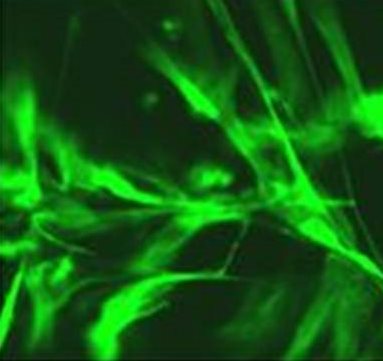11 January 2019
Furthermore, they showed that NOX-dependent and NOX-independent NETs differ in their endothelial cell stimulatory capacity. These results indicate heterogeneity in NET-forming pathways in vivo and highlight the need for disease-specific strategies to prevent NET-mediated pathology.Their findings were recently published in Annals of the Rheumatic Diseases, the highest ranking journal in the field of Rheumatology.

 Neutrophils can produce Neutrophil Extracellular Traps (NETs), which are web-like structures consisting of chromatin aimed to capture pathogens. NETs appear to play a role in several diseases including rheumatic autoimmune diseases. Although NET formation was originally described as a NADPH oxidase (NOX)-dependent pathway, it appears that there are also NOX-independent pathways of NET release. Currently, no tools are available that can discriminate between different NET-forming pathways.
Neutrophils can produce Neutrophil Extracellular Traps (NETs), which are web-like structures consisting of chromatin aimed to capture pathogens. NETs appear to play a role in several diseases including rheumatic autoimmune diseases. Although NET formation was originally described as a NADPH oxidase (NOX)-dependent pathway, it appears that there are also NOX-independent pathways of NET release. Currently, no tools are available that can discriminate between different NET-forming pathways.
Furthermore, they showed that NOX-dependent and NOX-independent NETs differ in their endothelial cell stimulatory capacity. These results indicate heterogeneity in NET-forming pathways in vivo and highlight the need for disease-specific strategies to prevent NET-mediated pathology.Their findings were recently published in Annals of the Rheumatic Diseases, the highest ranking journal in the field of Rheumatology.
Related news items

Academic collaboration agreement between UTwente and Radboudumc
23 November 2021 The group of Biomaterials Science and Technology (BST) of the Faculty of Science and Technology at the TechMed centre of University of Twente has signed a formal academic collaboration agreement with the departments of Nephrology and Physiology at Radboudumc. go to page
Molecular scissors play a role in kidney and lung leakage in COVID-19 patients
18 June 2020 ‘Molecular scissors', play a role in leakage of fluid from blood vessels to lungs and kidneys in COVID-19 patients. The scissors cut the protective sugar layer in the blood vessels. The more serious the disease, the more active the scissors, wrote Johan van der Vlag and colleagues in MedRxiv. go to page.aspx?width=2120&height=1414&ext=.jpg&type=BlockColumn1Zoom1)
New insight into the effect of hydroxychloroquine undermines its use in corona
11 June 2020 Researchers at Radboud university medical center have discovered an as yet unknown effect of hydroxychloroquine. Raphael Duivenvoorden was interviewed in the program Op1 at NPO1 to elaborate on the findings. It seems unlikely that chloroquine has beneficial effect in corona infections. go to page
Johan van der Vlag appointed as professor of Immunology of Kidney Diseases and Transplantation
23 April 2020 Johan van der Vlag is an expert in unravelling the molecular and immunological mechanisms underlying kidney disease and transplantation. His research stems from clinical questions and focuses on the development of new diagnostic/prognostic and therapeutic strategies. go to page
Dutch Kidney Foundation PhD grant for Johan van der Vlag and Tom Nijenhuis
14 February 2020 Johan van der Vlag and Tom Nijenhuis, theme Renal disorders, received this grant for their joint research project “Targeting a novel paracrine signaling pathway between glomerular endothelium and podocytes to treat glomerular injury”. go to page
